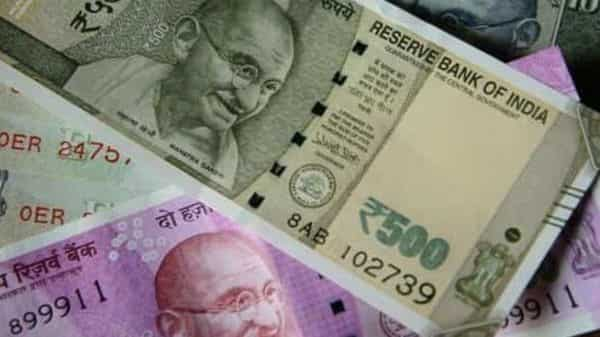PBSs sanctioned ₹5.95 trillion worth of loans during 1 Mar-8 May: Government
economic activity to a near standstill, hitting businesses. (Photo: Mint)” src=”https://images.livemint.com/img/2020/05/12/600×338/rupee4-k0mE–621×414@LiveMint_1589271314654.jpg” alt=”A nationwide lockdown, in place since 25 March, has brought economic activity to a near standstill, hitting businesses. (Photo: Mint)” data-src=”https://images.livemint.com/img/2020/05/12/600×338/rupee4-k0mE–621×414@LiveMint_1589271314654.jpg” data-loaded=”true” />
The finance ministry on Tuesday said public sector banks (PSBs) sanctioned loans worth ₹5.95 trillion to small businesses, retail, agriculture and corporate sectors during 1 March-8 May.
“PSBs sanctioned loans worth ₹5.95 lakh crore for more than 46.74 lakh accounts from the MSME, Retail, Agriculture & Corporate sectors between March 1 and May 8, 2020. Total financing worth ₹1.18 lakh crore was provided to NBFCs (non-banking financial companies),” the ministry said in a tweet.
The finance ministry had earlier said the amount of loan sanctioned during the lockdown indicates that the economy is poised for a recovery. However, the numbers do not reflect the disbursed amount.
These borrowers from micro, small and medium enterprises, retail, agriculture and corporates await the disbursal of loans that will take place soon after lockdown lifts, the ministry had said last week. Part of loans were also sanctioned even before the nationwide lockdown was imposed.
“Sanctioning of loans is the first positive step. But it is important to look at the amount that is sanctioned and utilisation of funds over a period of time. Over a period of time, one can assume that since loans have been sanctioned, it will be used in the system,” Madan Sabnavis, Chief Economist at Care Ratings said.
Credit growth has been subdued sometime now. During the financial year 2019-20, credit growth was 7.6%, driven by lending to NBFCs and large corporates. “The covid-19 and the subsequent extended lockdown has adversely impacted business activities of SCBs (scheduled commercial banks) due to weak demand and increased risk aversion. Retail loans may witness marginal contraction in credit offtake as consumer demand moderates due to disruptions caused by covid-19,” CARE Ratings said in a report last week.
“Between 20 March and 8 May, state-owned banks contacted 97% of borrowers eligible for emergency credit lines and working capital enhancements. Loans worth ₹65,879 crore were sanctioned, up from the ₹26,500 crore sanctioned as of May 4, it said.
State-owned banks such as State Bank of India (SBI), Bank of Baroda (BoB), among others have been offering pre-approved emergency credit lines, especially to support small businesses that have been hit the most by the covid-19 pandemic and a following lockdown. These were mostly limited to 10% of the borrowers’ fund-based working capital limit.
A nationwide lockdown, in place since 25 March, has brought economic activity to a near standstill, hitting businesses. Towards help mitigate the impact of the lockdown, the government and the Reserve Bank of India (RBI) in the last few weeks have announced a series of measures to improve credit supply, and support businesses, middle class, and the poor hit by covid-19. The government in March had rolled out a ₹1.7 trillion relief package under a newly framed Prime Minister Garib Kalyan Yojana on 26 March, which experts have termed inadequate. There is a growing demand for a ₹9-10 trillion stimulus worth 4-5% of gross domestic product (GDP) to support growth and employment. A financial package for the industry is expected any time now.

